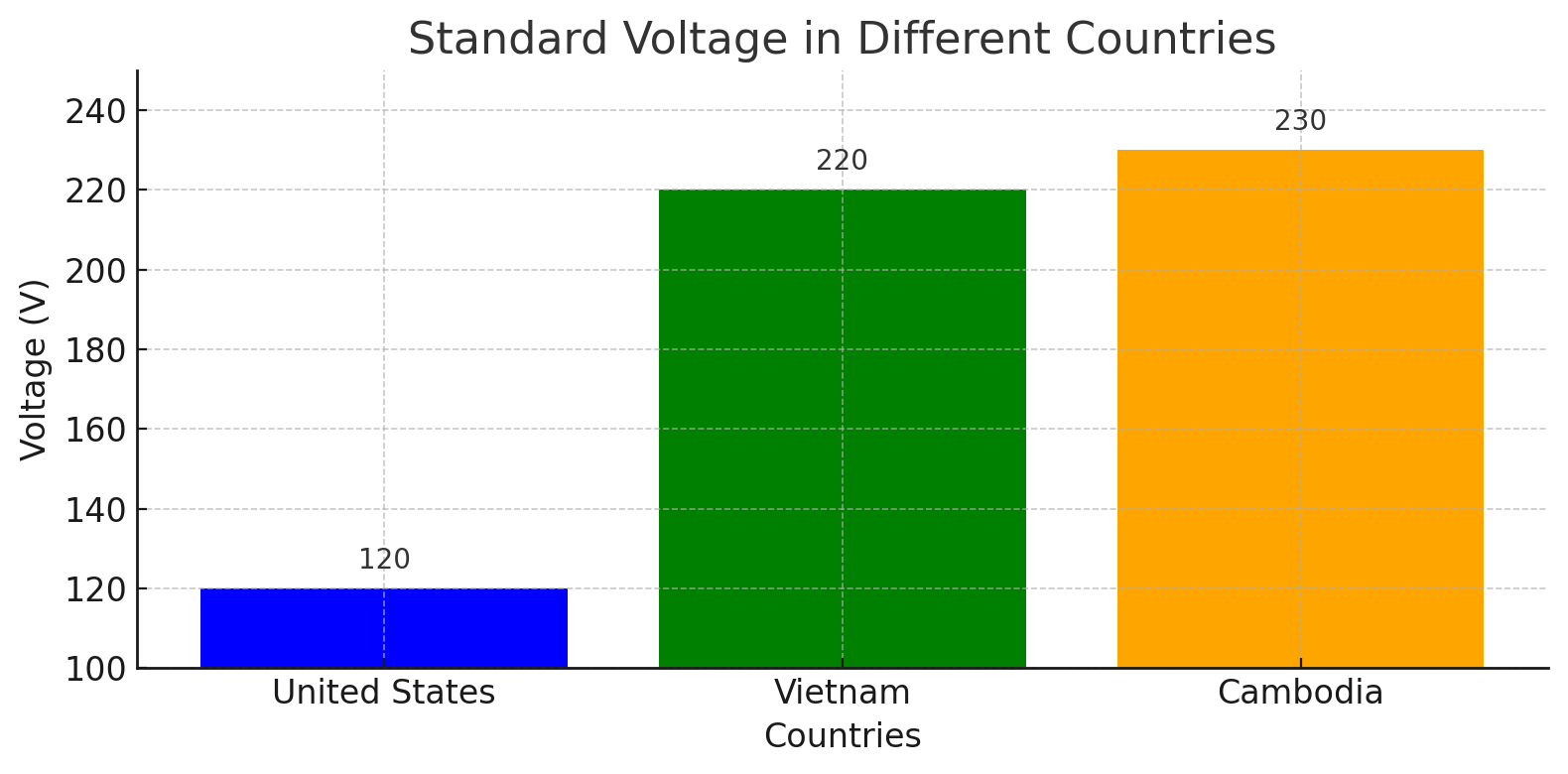Plug Sockets in the United States - An Essential Guide for Travelers
Key Takeaways
| Aspect | United States |
|---|---|
| Common Plug Types | Type A and Type B |
| Voltage | 120 V |
| Frequency | 60 Hz |
| Power Adapter Needed | Yes, for non-Type A/B plugs |
| Voltage Converter Needed | Yes, if device is not dual voltage |
If you are in a rush then Amazon has fast delivery times:
🇺🇸 Amazon Travel Adaptors USA - All adaptors
🇬🇧 Amazon Travel Adapters UK- All adaptors
🇨🇦 Amazon Travel Adaptors Canada- All adaptors
Introduction
Travelling to the United States provides an array of exciting experiences, from vibrant cities to stunning natural landscapes. It's crucial to ensure your electronic devices remain charged and functional during your travels. Understanding the local electrical infrastructure, including plug types, voltage, and frequency, is essential. This guide will help you prepare effectively for your trip.
Types of Plug Sockets in the United States
In the United States, two main types of plug sockets are commonly used:
- Type A: This plug has two flat parallel pins, widely used in North America and Japan.
- Type B: This plug has two flat parallel pins and a grounding pin.

Voltage and Frequency
The United States operates on a standard voltage of 120 V and a frequency of 60 Hz. This is different from many other countries, particularly in Europe and Asia. If your device is not compatible with this voltage, you will need a step-down converter.

For more details on universal power adapters, check out our Universal Power Adapters Guide.
Do You Need a Power Adapter?
If your devices use a different plug type, you'll need a power adapter to use them in the United States. For example, travellers from Europe and Asia who commonly use Type C and G plugs will need an adapter for Type A or B sockets. It's advisable to purchase a universal travel adapter that accommodates multiple plug types, ensuring you are prepared for any situation.
Voltage Converters and Dual Voltage Devices
Most modern electronic devices such as laptops, smartphones, and cameras are designed to handle a wide range of voltages. However, if your device is not dual voltage (i.e., does not specify "110-240V"), you will need a voltage converter. Always check the device's voltage rating before plugging it in.
For more information on voltage converters, visit our Voltage Converters Guide.
Conclusion
Understanding the electrical setup in the United States is essential for a seamless travel experience. By being prepared with the right adapters and knowledge, you can ensure your devices remain charged and ready for use throughout your journey.
